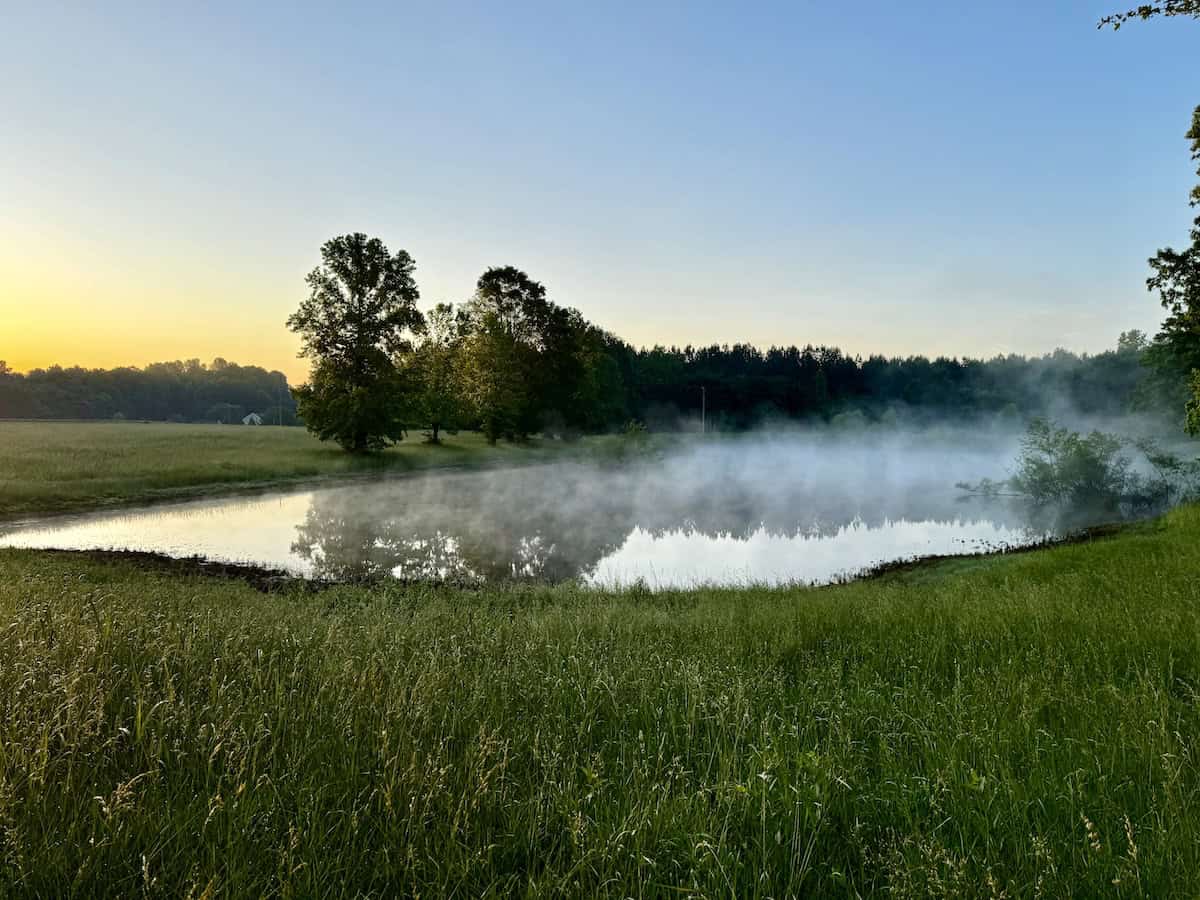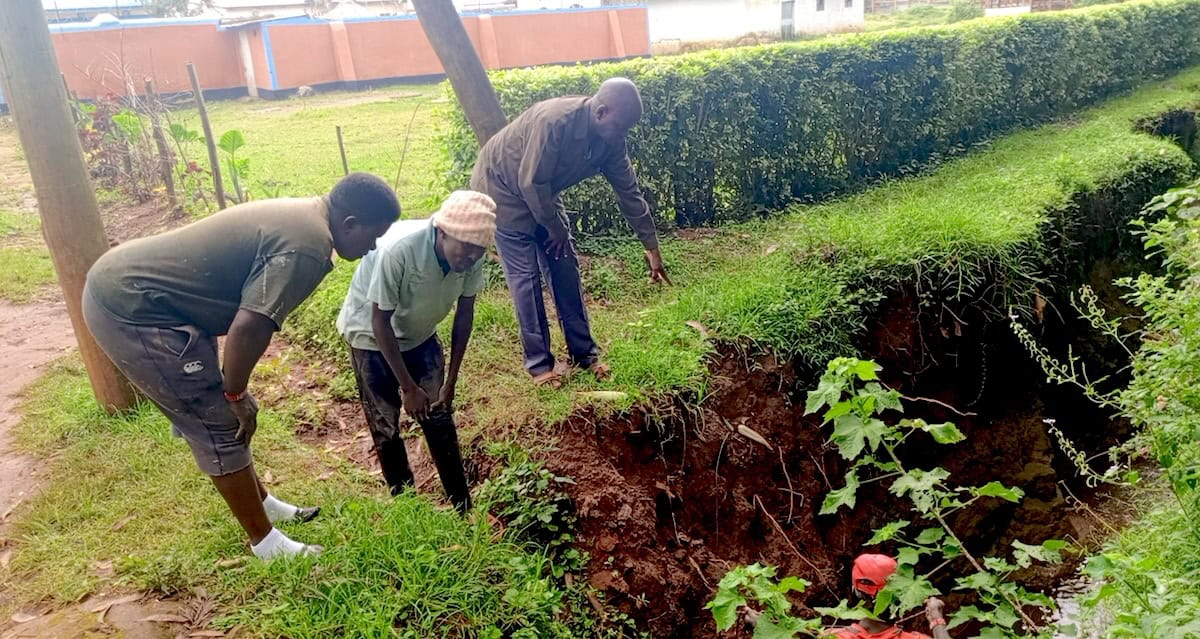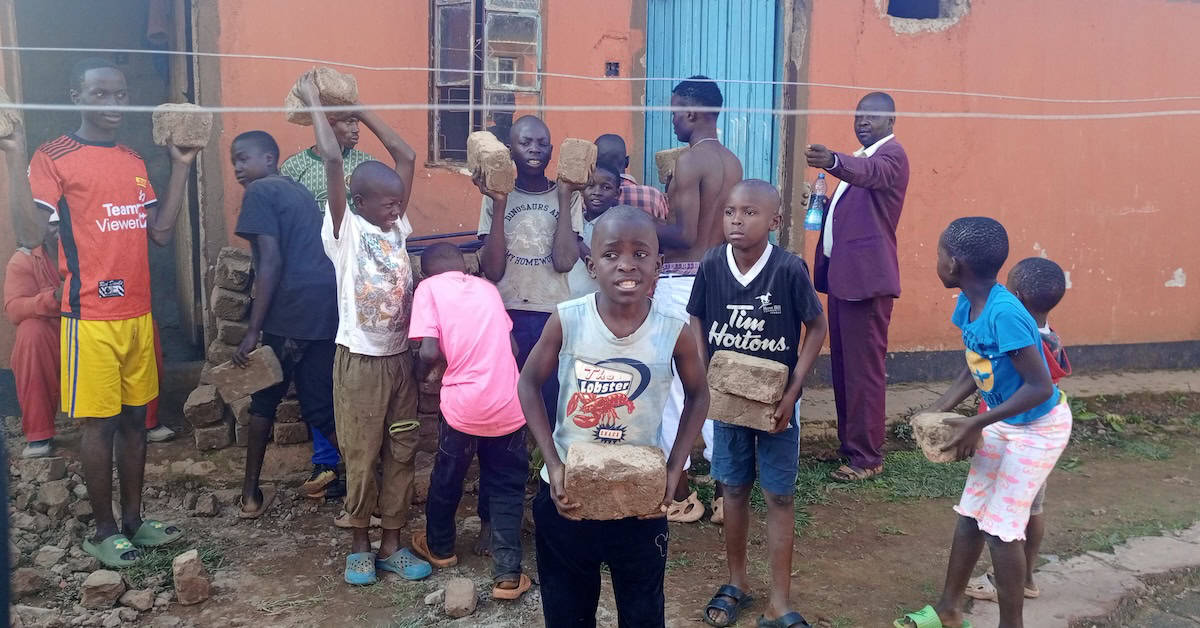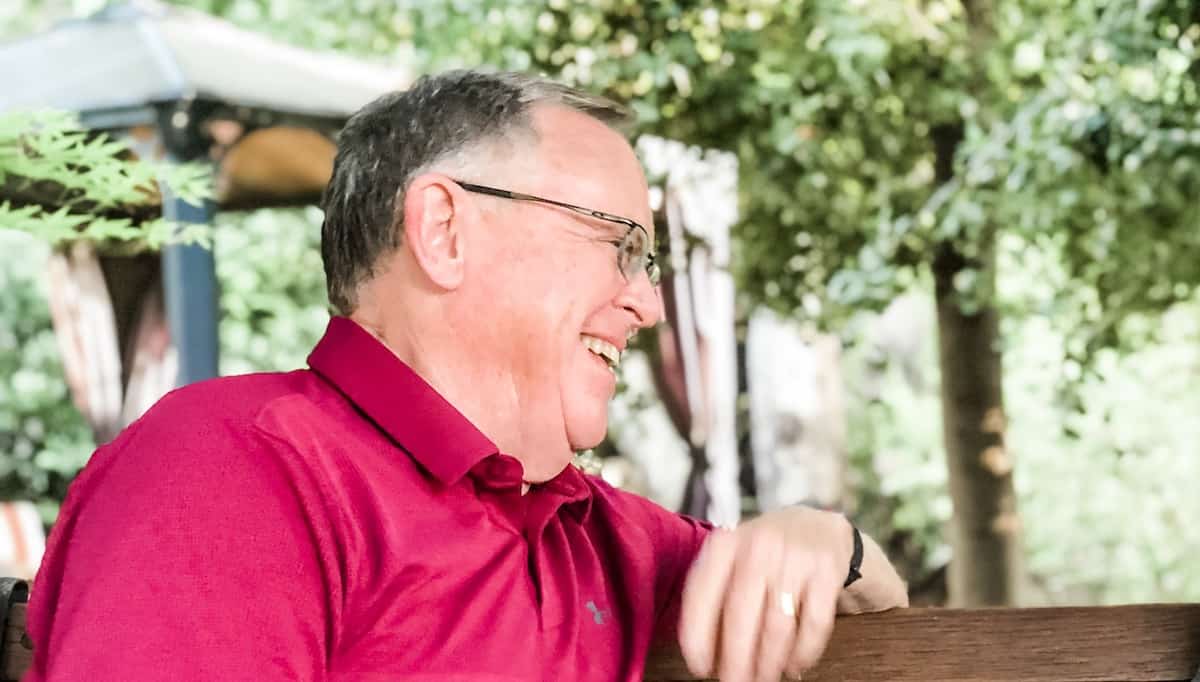Note: This is the eighth in a series of letters written for those who will be living at the end of the age, whenever that comes. Once complete, I’ll combine them into a book. You can access the previous chapters here. If you are not already subscribed to this blog and want to make sure you don’t miss any, you can add your name here.
I wish truth was more obvious. Seemingly reasonable people violently disagree with other seemingly reasonable people. Why can’t we have one source of clear facts on which we can base our decisions? Christians can’t even agree on what the Bible says about God or how we are to follow him. I’m so confused. Who can I trust to tell me the truth?
Caryn, social media influencer and mother of two from Southern California
Caryn,
What a great question, especially doing what you do. We’ve often talked about how your job makes you choose every day between telling the truth and doing what will make you the most money. I wish more people cared about what’s true. Most cherry-pick information to justify what they already want.
“What is truth?” is as relevant a question today as when Pontius Pilate asked Jesus about it. Though he asked the right person, he didn’t wait for an answer. He used it dismissively, so as not to confuse the decision he had to make.
It’s a question I ask daily, not in a philosophical way, but in wanting to know what’s true about the situations I face, about my own heart and motives, or how God is making himself known to me. His light is the only thing that makes sense out of the chaos of this world and has guided me through its most difficult challenges.
His light brings life, and yet so many of us resort to lies whenever we think they can help us. Here is the strangest conversation I ever had. A good friend of mine had told me about some developmentally challenged children who were having a fascinating connection to God. Visiting his city a few months later, I asked him more about it because I thought it would encourage parents with similar children.
He acted as if he had no idea what I was talking about. Surprised, I pressed him but also gave him an out. “If you’re not comfortable talking about this, I’ll understand.” Again, he acted confused, denying the conversation we’d had months before. What was strange about this encounter was that I knew he was lying to me, and by the look on his face I was sure he knew that I knew. Nevertheless, he persisted, gaslighting me enough to make me question my own memory.
Years later, a mutual friend told me he had pretended ignorance to get me off the scent. It would have been far easier to tell me that. Instead, he chose to double-down on a lie with such conviction that it damaged our friendship. Now, he was uncomfortable around me, and I didn’t know if I could trust anything he said. Sadly, a man I’d known to be sensitive to God started slipping into other areas of darkness as well, taking advantage of others.
You cannot play with a little bit of darkness and not risk getting sucked into its vortex. Many I know risk that today, thinking they can use half-truths and white lies to honorable ends. You can’t. There are two kingdoms vying for control—the kingdom of darkness and the kingdom of light—and they are mutually exclusive.
Where Darkness Thrives
We were all born into a world of lies and illusions. Everyone thinks they live in truth, but what if “our truth” isn’t true at all? My whole life I’ve been trading in the lies I’ve believed for the truth Jesus reveals. In the days that portend the end of the age, this confusion between true and false grows even greater, so that even the very elect can be deceived. (Matthew 24:24)
We see it as a matter of course in our day with advertising, accusations of “fake news,” and outright fabrications. Lies are easier to spin than confronting people with difficult truths. Politicians, celebrities, and business leaders use deception as a regular tool to manipulate public support. Every statement allows them to spin the narrative they want to manipulate their target demographic. Even worse, our media has joined them, often stringing together legitimate facts to false conclusions. Here, half-truths are more destructive than outright lies, for it doesn’t take much cyanide in the punch to poison the whole brew.
It’s even worse when close relationships are infected by darkness. A well-placed lie has tremendous power. It can get you out of a tight spot or destroy someone’s reputation. We’ve all done it and been mostly oblivious to its effects, if we benefit from it. But lies destroy, and once you tell a lie to protect yourself, you must tell an increasing number of lies to cover the first one. That will invariably lead you to places you don’t want to go and hurt people you would rather not have hurt.
The kingdom of darkness thrives inside of lies, secrets, innuendo, and deception, and all of those do great damage, even if you don’t know what you’re saying is untrue. My wife, Sara, lived with a dark secret in her body for over sixty years. Threatened into silence by her abusers, she lost track of what was real and is now only beginning to discover the truth of what happened to her, and who she really is.
I can’t tell you how much I grew up believing about God that turned out to be untrue. When we decide to follow Jesus, he will draw us out of the tentacles of darkness that have held us captive. That may sound easy, but coming to know the truth about God, ourselves, and the world around us, is the longest, most difficult journey you’ll ever take. Take it anyway, because it leads to beautiful places.
Poking Holes in Our Illusions

I suspect half of what I think I know today is wrong, and that may be generous. I don’t know what I’m wrong about, or I would give it up. What’s more, the confirmation bias we all have predisposes us to weigh evidence based on what we already think is true and not even notice evidence to the contrary. How do I know that? Because with each passing season I watch Jesus poke holes in my illusions and invite me into truth. It’s one of my favorite things about him, but that doesn’t mean it’s easy.
Here’s how Eugene Peterson expressed it in his translation of John 5. “(The world) is against me because I expose the evil behind their pretensions.” That is a mouthful, and it isn’t only true of the world, but also our worldly thoughts. Evil works behind our illusions, lies, and our pretenses to impress others.
So, when Jesus, or anyone else, pokes holes in our illusions, we get defensive, grab our spiritual duct tape, and try to cover the hole. We like the illusions that comfort us and can even get hostile when they are challenged. As they fail us, either by Jesus’s intervention or when they bump up against the reality of life, it hurts. Illusions die a hard death.
It’s what you feel when the God who is “supposed to protect you” allows some kind of tragedy into your life. The pain makes you question God, your faith, or whether he even loves you. Yet, that whole perspective is misplaced. He doesn’t “allow” bad things into our lives; they are simply the result of living in a fallen age.
Without recognizing what’s true, we end up blaming God or ourselves, instead of learning how God works. He protects us by guiding us through the pain in our lives, refining our faith and perceptions of him in the process, and transforming the way we think and live.
The Path to Freedom
To his followers, Jesus said, “You will know the truth, and the truth will set you free” (John 8:32). I used to think he was talking about theological truth. When you know Scripture and believe it, you will be free.
Of course, knowing the truth about God and Jesus that Scripture teaches can be incredibly helpful, if we’ve interpreted it rightly. But that is easier said than done, since we have so many denominations simply because we can’t agree on what’s true even after 2000 years of studying the Bible. I’m convinced Jesus was talking about so much more than getting doctrine right. He wanted us to know the truth about ourselves and how we’re responding to the world around us.
Much of his truth brings great joy—that we are deeply loved by God, that his death has relieved us from all shame and fear, and that he will care for us no matter what we face in this world. But what about those lies we’ve come to believe to comfort ourselves? We often decide what’s true based on whether it serves us well, so we pick up a lot of illusions—that following religious traditions makes us more special to God, that “my truth” is more important than his, or that God hates all the same people I do.
Giving up those things is more difficult and makes us more resistant when he challenges them. Thus, before the truth sets us free, it messes with us first. Since so much of what we believe is based on lies, illusions, and half-truths, our first inclination when truth appears can be to reject it. So many times, I’ve thought, “I hope that isn’t true,” when I start to see something he’s showing me. Get past that and you’ll discover what a treasure his truth is, especially when its challenging.
Embracing what’s true or doubling down on our illusions is a choice we face every day. Sometimes our friends won’t help us here. Holding to the same illusions we do, they may discourage us from following something different. You won’t be able to convince them otherwise by arguing with them. You can only live in such a way that they either marginalize you because you make them uncomfortable, or they seek you out because of how grounded the truth will make you, especially in adversity.
A Love for Truth
So, how do we know when you’re believing something that isn’t true? In short, we won’t until Jesus by his Spirit reveals it to us. He didn’t say he’d give us a book but his Spirit “to guide us into truth (John 16:13), and John added that we all have an anointing that will help us distinguish between truth and error (I John 2:20).
As we learn to follow the Spirit, he will help us to live in the light. That’s not easy and doesn’t come quickly, but he will show you the truth that you need, whether it is correcting our views of God or showing us how to navigate a difficult relationship.
We’ll never be able to study enough truth to navigate life by our own wisdom. What we can do is cultivate a heart that is ready for truth so that when it comes, we’ll recognize it. Paul told the Thessalonians that a “love of the truth” was our greatest protection from delusion at the end of the age (2 Thessalonians 2:10). That’s not about their salvation or God’s punishment; it’s the admission that the kingdom of darkness destroys; the kingdom of light heals.
If you don’t love the truth, you will miss it when it comes. If you do, your heart will open to whatever his Spirit wants to show you. Here’s my resolve: “I want to know what’s true, even if I have to admit I’m wrong, even if I’ll need to apologize for my actions, and even if others reject me.”
When Jesus asked the Pharisees where they thought his authority came from, they refused to answer, knowing the crowd would judge them harshly no matter what they said. The reason they couldn’t see the truth is that they were more focused on what people thought of them than what God did (Mark 11). Anything we pursue, other than truth, will send us down trails that hurt us. That includes clicks and likes or wanting validation from people. When feeling good is more important than knowing truth, we will find ourselves wandering in increasing darkness.
My grandson and I watched the Matrix, where the hero must choose between taking a red pill that will open his eyes to the harsh truth or he can take a blue pill and stay in the comfort of an illusion that imprisons him.
A few brutal scenes later, my grandson asked, “Which pill did Neo take?”
“The Red pill,” I answered.
“I want the blue pill!” he exclaimed, pointing to himself. “Blue pill!”
I hope, in time, that changes for him, but he expressed where most people live. “Give me the comfort of my illusions rather than the challenges truth might bring.” And yet, those are the same people who, when their illusions eventually unravel, will complain that God ignored them, when he has been inviting them into his truth all along.
If you don’t love the truth above comfort, you will lean on those thoughts that keep you in the dark. What I admire so much about Sara in the last few years is her unrelenting passion to discover what was true about her past. It has been excruciatingly painful for her, but with Jesus alongside her it has been a beautiful process of healing. Darkness doesn’t fade away easily, but it will always yield to the light.
Cultivate a Space for Truth to Appear
Caryn, if you love what’s true; it will come to you when you need it. These suggestions may help prepare the way.
Ask him regularly to show you what’s true. My most ardent prayer is, “I want to know you as you really are, I want to see myself as you see me, and I want to see my circumstances through your eyes. Probe every corner of my heart and mind to expose any lie that traps me.” The more you follow truth, the easier it will become to love it. It opens the most amazing doors.
Check your heart frequently. In the things that concern you, do you want the truth or do you want the easy road? If you find yourself resisting a conversation because the truth might make you uncomfortable, maybe you have some room to explore here. I’ve had people flat out tell me, “I don’t want to know what’s going on here,” preferring the head-in-sand approach to embracing the light. If you really want to know the truth, you’ll ask questions, listen carefully, and not reject an insight just because it will cost you.
Play with uncomfortable thoughts to find out what his Spirit might be showing you. Don’t be afraid to learn something new. I find a growing restlessness in my heart when I am following an illusion. I may not know why, but if I honor the restlessness and ask him to show me, in time I’ll discover why. By the same token, when I am following his insights, I have a growing sense of rest in my heart, even in the middle of conflict. Be more suspicious of “discoveries” that seem to benefit you than those that challenge you.
Make it a regular part of your conversation with close friends who inspire you to truth: Ask the question, “What is true here?” Share what you’re contemplating and see what input they might have. Ask them to help you separate what you want to be true from what really might be true. Realize the truth will often be more difficult than our desires but therein lies the path to life.
Include people who don’t always agree with you and ask why they think like they do. That doesn’t mean they have it right, but it will give you thoughts to weigh as the Spirit will give you an increasing conviction about what is true.
Here are some cautionary guidelines that help me process the input of others: If someone is pushy, they are not helping me, but their own agenda. If someone thinks they know the motives of others, I don’t trust their conclusions, since accusing people of bad motives is the easiest way to elevate ourselves and dismiss others. When someone asks me to “believe” them when I ask questions, I know they don’t understand the nature of truth. And, if someone is angry or defensive, I know they are not confident about their own conclusions. Truth comes with a sense of peace and quiet that doesn’t bleed on others.
Watch the fruit of what you embrace as true. Does it help resolve your response in tight situations without having to be mean or lie? Does it offer you a place in God’s love and safety even if it doesn’t fix everything the way you want? Does it keep you grounded in safety and love?
 Enjoy the Journey
Enjoy the Journey
Discovering what’s true is a lifelong adventure. No one can possibly know it all; it is as vast as the ocean. No one would claim to be an expert by simply walking on a beach, exploring a few tidepools, or even scuba diving. All we need to know is the truth that helps us today. Realizing that will help you live humbly.
I’m not talking here about the big-ticket theological realities we know with certainty—that God created us, that Jesus, as God in the flesh, came to redeem us back to his Father from where we had fallen, and that we can trust him with every detail of our lives. But there are so many other matters where we can think less, “I’m right about this,” and more, “This is the best I see at the moment.”
Stay curious, open, and flexible as the Spirit continues to draw you more deeply into his reality. Loving the truth and the desire to be right are not the same thing. The desire to be right will lead you down false trails to defend yourself. Better to apologize for an error than prop up a mistake with more of the same.
Don’t think walking in truth means you owe everyone the whole truth, unless you’re in court. You owe them authenticity. When you speak, speak what’s true, as much as you think will help them. And when you don’t want to share something, just say, “I’m not comfortable talking about that right now.”
As a man from Australia wrote me a few months ago, “Christianity has weaponized truth instead of embodying the Truth.” What a great statement! We’ve gleaned truth from Scriptures and push it on others with condemnation and shame, only to disaffect them from the God who can bring truth into their hearts.
When you can rest in what’s true, you’ll realize just how precious it is and you’ll respect the process for others to discover it as well, knowing it is as important as the truth itself. Then you won’t have to push people to your conclusions, and you won’t need their agreement to validate you.
Caryn, in the next letter we’re going to talk more about training our eyes to see what his Spirit is doing around us and ears to hear what he is saying to us. For now, let your love for the truth deepen, and with it, hold lightly the things you already think are true, so he has room to show you what really is.
Then you’ll be ready for whatever may come.
_________________________
You can access previous chapters here. Stay Tuned for Chapter 9.














 Why does God choose to engage it this way? Couldn’t he just be clearer from the outset? I don’t know that God has chosen to speak to us in riddles, I just think it looks that way from our side. The Creator connecting with his creation is a reality all its own and we wake to it like a small child growing to appreciate the world she is in. Everything comes in bits and pieces as she learns to navigate the world outside the womb.
Why does God choose to engage it this way? Couldn’t he just be clearer from the outset? I don’t know that God has chosen to speak to us in riddles, I just think it looks that way from our side. The Creator connecting with his creation is a reality all its own and we wake to it like a small child growing to appreciate the world she is in. Everything comes in bits and pieces as she learns to navigate the world outside the womb.


 Enjoy the Journey
Enjoy the Journey